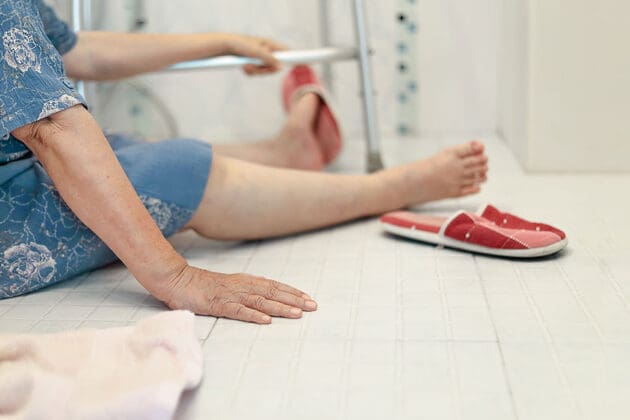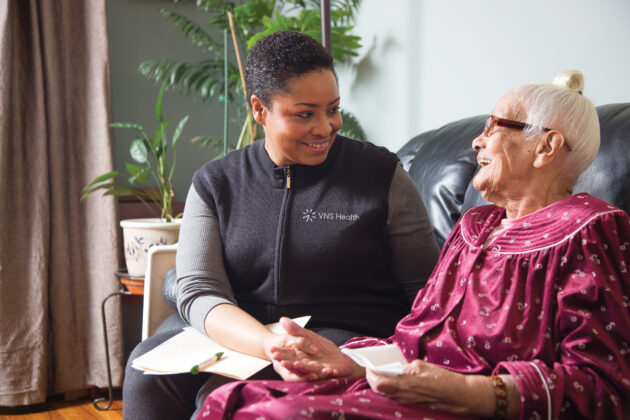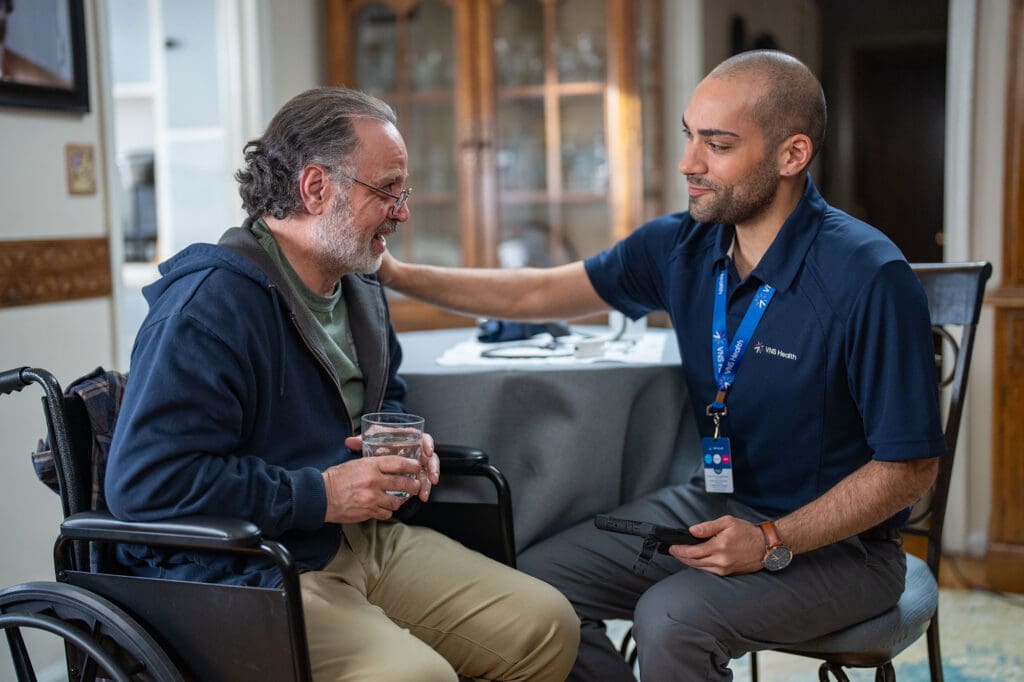
Coming home from the hospital after an illness, injury, or surgery can be overwhelming. Whether you’re starting new medicines, learning to move around safely, or just focusing on getting back to everyday life, it can seem like there is a lot to juggle.
That’s where home care comes in.
Your health care provider might prescribe home care to help you as you recover. Home care includes a team of specialists who are experts at keeping you safe and helping you heal. Everyone’s home care team is a little different because each team is built around a person’s individual needs. Here are five types of people who may be on your home care team, and the unique role each one plays in your care.
Care Manager
Your main point of contact will be your care manager, who is responsible for overseeing all of the services you receive from VNS Health. The care manager coordinates visits from the other members of your care team and communicates with your health care provider.
In most cases, care managers are registered nurses. However, if you are recovering from an injury or surgery and need physical therapy, your physical therapist might take on the care manager role. Both nurses and physical therapists can monitor your recovery, check your vital signs, and change bandages. Nurses can provide additional medical care, like giving medicines; and they oversee home health aides who may be there as part of long-term care.
Depending on the care you need, your care manager may be, or may bring in, a nurse who has advanced training, such as:
- A certified wound, ostomy, and continence nurse
- A gender affirmation surgery specialist
- An oncology certified nurse
- A gerontological certified nurse
Sometimes, a licensed practical nurse may assist with care.
After a hospital visit or injury, you have enough to worry about. We offer expert care so you or a loved one can recover safely in the comfort of home.
Rehabilitation Therapists
Recovering from a stroke, illness, injury, or surgery involves regaining lost skills. That’s when you may need to work with a rehabilitation therapist. Several types of rehab therapists may be on your care team.
Physical therapists help you improve strength, flexibility, balance, and coordination. They can show you how to move safely with an assistive device like a cane or walker. Your physical therapist, rather than a nurse, might act as your care manager.
Occupational therapists help you improve your fine motor skills. These are the small, precise movements that you make with your hands, fingers, feet, and toes that allow you to do everyday tasks like buttoning a shirt or shaving.
Speech-language pathologists help you regain the ability to speak and to understand speech. They can also give you exercises to strengthen the muscles of your face, mouth, and neck to improve your ability to chew and swallow, as well as prevent choking.
Medical Social Workers
In certain cases, a home care team will include a medical social worker. Social workers can assess your physical, emotional, social, financial, and environmental needs. For example, they may recognize that you would benefit from talking to a mental health professional.
Once they determine your needs, your social worker will work on finding resources for emotional or financial support. They can help you with paperwork, such as insurance forms; coordinate support from community organizations; and arrange respite care (a short break from caregiving) for a loved one who has been acting as your caregiver.
Certified Home Health Aides
Certified home health aides (HHAs) assist with personal care needs, like bathing, getting dressed, and preparing meals. Although they can’t provide medical care, they can help you track your symptoms so that you can talk to your health care providers about them.
HHAs can also help with light housework — but only if it is associated with providing care. For example, they can change soiled bed sheets, prepare meals, or tidy up the kitchen after cooking, if that’s part of your care plan. It’s important to remember that they are not housekeepers and are not responsible for things like washing windows or doing the family’s laundry.
Typically, HHAs are only covered by Medicare (or by Medicaid if you are part of a managed long-term care program) when their services are ordered by your health care provider and are medically necessary.
What’s the Difference Between Nurses and Home Health Aides?
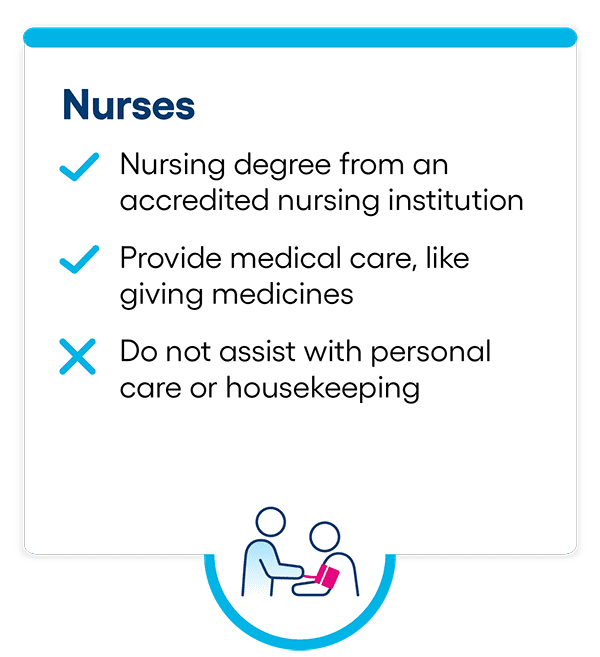
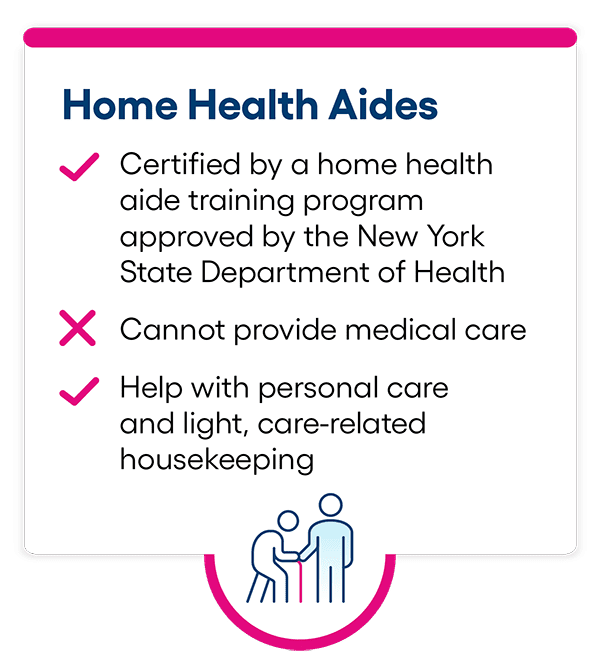
Private-Pay Care Providers
When you need home care, you’re not necessarily limited to what Medicare or private insurance (such as what you have through work) covers. Private-pay services are paid for out of pocket or may be covered by a long-term care insurance plan, if you have one.
If you use private-pay services, your care team may also include:
- HHAs who provide services beyond what insurance usually covers (e.g., companionship, extended work hours, long-term care)
- HHAs with specialized training in caring for people with Alzheimer’s disease and other types of dementia
- A geriatric care manager who coordinates your care, builds a customized care team for you, and helps your caregiver manage financial or legal matters
- Skilled nurses
- A health care escort who can take you to and from medical appointments
